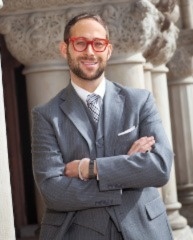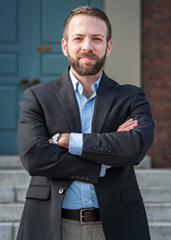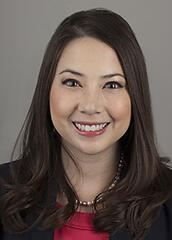Browse all past issues of VPAL's Into Practice Blog
Search All Issues
Topics
- active learning (18)
- research assignments (6)
- libraries (1)
- literature-based learning (2)
- multimedia (5)
- museums (6)
- object learning (7)
- online learning (5)
- peer instruction (10)
- storytelling (2)
- learning management system (2)
- syllabus design (3)
- teaching empathy (3)
- teaching fellows (1)
- lecture (3)
- learning goals (8)
- assessment (6)
- data (3)
- backward design (3)
- blended approaches (12)
- case-based learning (8)
- classroom contracts (7)
- classrooms and space (3)
- collaborative learning (27)
- community events (1)
- course transformation (7)
- devices (3)
- learning by making (5)
- discussion (24)
- engaged scholarship (4)
- experiential learning (16)
- feedback (18)
- group work (8)
- guest speakers (7)
- interdisciplinary (6)
- leadership (3)
Subscribe
Copyright © 2024 The President and Fellows of Harvard College | Privacy | Accessibility | Digital Accessibility | Report Copyright Infringement

 I. Glenn Cohen, James A. Attwood and Leslie Williams Professor of Law, Deputy Dean at Harvard Law, and Faculty Director of the Petrie-Flom Center for Health Law Policy, Biotechnology & Bioethics, teaches courses on health law and civil procedure. As Deputy Dean, Professor Cohen instituted a new pre-orientation program for law students,
I. Glenn Cohen, James A. Attwood and Leslie Williams Professor of Law, Deputy Dean at Harvard Law, and Faculty Director of the Petrie-Flom Center for Health Law Policy, Biotechnology & Bioethics, teaches courses on health law and civil procedure. As Deputy Dean, Professor Cohen instituted a new pre-orientation program for law students,  Stephanie Pierce, Professor of Organismic and Evolutionary Biology, and Mansi Srivastava, John L. Loeb Associate Professor of the Natural Sciences co-developed a course for undergraduates with a goal of reaching a larger number of students and exploring similar sets of questions from different angles. They bring their expertise together in a novel course that truly represents the aims of integrative biology:
Stephanie Pierce, Professor of Organismic and Evolutionary Biology, and Mansi Srivastava, John L. Loeb Associate Professor of the Natural Sciences co-developed a course for undergraduates with a goal of reaching a larger number of students and exploring similar sets of questions from different angles. They bring their expertise together in a novel course that truly represents the aims of integrative biology:  Shai Dromi, Associate Senior Lecturer on Sociology (FAS), teaches courses on philanthropy, activism, and collective identity. Dromi frequently incorporates active learning exercises and collaborations into his courses. In his undergraduate course, Philanthropy and the Nonprofit Sector, he partners with a wide variety of Harvard offices, including
Shai Dromi, Associate Senior Lecturer on Sociology (FAS), teaches courses on philanthropy, activism, and collective identity. Dromi frequently incorporates active learning exercises and collaborations into his courses. In his undergraduate course, Philanthropy and the Nonprofit Sector, he partners with a wide variety of Harvard offices, including  Dr. Rose Molina
Dr. Rose Molina